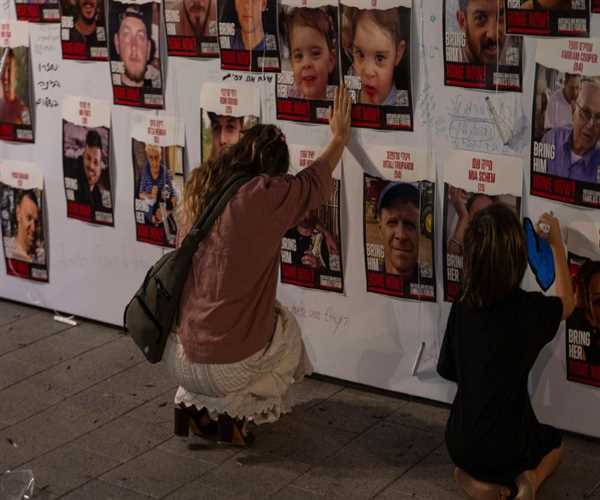
14-Jun-2024 , Updated on 6/14/2024 4:39:54 AM
Hamas ‘punished’ hostage in captivity, family says
One of the captives freed over the weekend by an Israeli operation has revealed, according to his family, that he was subjected to psychological torture by his Hamas captors during his eight months of detention in Gaza.
Along with Noa Argamani, Almog Meir Jan, and Shlomi Ziv, Andrey Kozlov, 27, was saved on Saturday during an operation on the Nuseirat refugee camp located in central Gaza. Israel has lauded the operation, which was just the third time that Israelis had rescued hostages from Gaza. However, it left a path of destruction; according to Gaza officials, the raid and the subsequent gunfight with Hamas fighters claimed the lives of at least 274 Palestinians.
In the crowded area, Kozlov and the others were being kept in two civilian buildings. According to the Israel Defense Forces (IDF), the raid was conducted simultaneously in the two buildings out of concern that the kidnappers might kill some of the captives if they discovered an operation was underway.
The medical director overseeing the care of the four Israeli captives freed on Saturday claimed that they had been abused during their detention in Gaza by Hamas.
Dr. Itai Pessach told CNN, "It was a harsh, harsh experience, with a lot of abuse, almost every day." "Every hour, in terms of physical, mental, and other forms, and that is incomprehensible."
According to Pessach, the eight months they spent in captivity "left a significant mark on their health," and even though they all first seemed healthy, they are all emaciated. "They had no protein, which caused their muscles to be incredibly wasted and caused damage to some other systems."
The captives informed him they were relocated many times and had to deal with multiple guards, he claimed.
"Malnutrition or not getting enough food or the right kind of food, medical neglect, being confined to a small space, not seeing the sun, and all of the other things have a significant effect on health. There have been times where they got almost no food whatsoever, and there have been other periods where it was a little better.
The testimony offers up to date information on the circumstances Hamas maintains its hostages in. Previous captives have described their experiences in detail.
According to her cousin Merav Mor Raviv, Keren Munder, her mother, and her 9-year-old son—among the several hostages freed under a brief truce last year—went days without eating anything other than pita bread.
Adina Moshe, 72, was another prisoner who, according to her nephew, was kept in "horrible" circumstances and lacked access to even the most basic amenities, including a shower.
Following the October 7 assault by Hamas, in which terrorists murdered about 1,200 people and kidnapped over 250 more, Israel began its war in Gaza. Since then, the Israeli assault has resulted in a humanitarian disaster and killed over 37,000 Palestinians, according to the Gaza Ministry of Health. A UN assessment issued recently warned that over a million people, or half of Gaza's population, are "expected to face death and starvation" by mid-July, adding to the rising concerns over food shortages and famine.

CONTENT WRITER
Writing is my thing. I enjoy crafting blog posts, articles, and marketing materials that connect with readers. I want to entertain and leave a mark with every piece I create. Teaching English complements my writing work. It helps me understand language better and reach diverse audiences. I love empowering others to communicate confidently.
Join Our Newsletter
Subscribe to our newsletter to receive emails about new views posts, releases and updates.
Copyright 2010 - 2026 MindStick Software Pvt. Ltd. All Rights Reserved Privacy Policy | Terms & Conditions | Cookie Policy